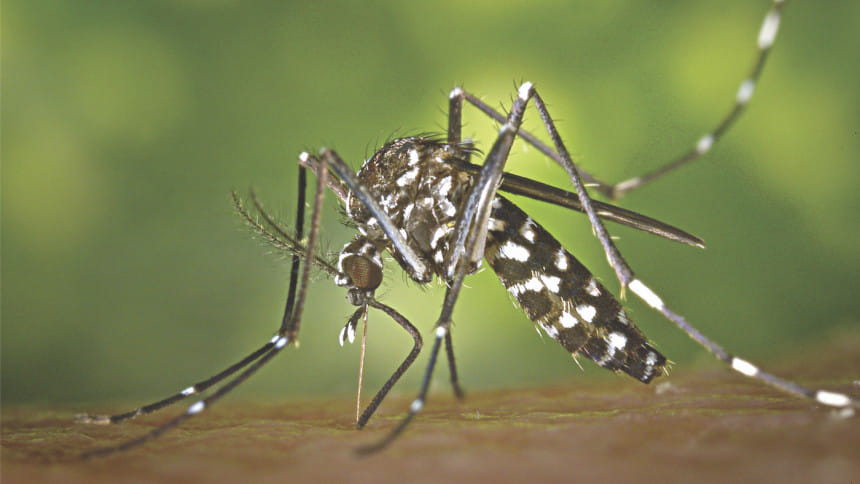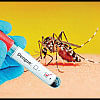Should Bangladesh try Wolbachia?

Many countries including Singapore, Sri Lanka, Indonesia, Malaysia, Thailand, Vietnam and Brazil are opting for the Wolbachia method for dengue control.
Under the method, lab-grown male Aedes aegypti mosquitoes infected with the naturally occurring Wolbachia bacteria are released into the wild. The bacteria compete with viruses inside the mosquito, thus hindering viral replication and transmission of diseases like dengue, Zika, chikungunya and yellow fever.
This is the rationale behind a Wolbachia replacement strategy, where Wolbachia-carrying mosquitoes are released to take the place of Aedes aegypti mosquitoes to reduce disease transmission.
Instead of replacement, Singapore uses a suppression strategy wherein non-biting male Wolbachia-carrying mosquitoes are released to mate with female non-Wolbachia-carrying Aedes mosquitoes.
The resulting eggs do not hatch because of cytoplasmic incompatibility, leading to a decline in both Aedes mosquito populations and the spread of disease. This strategy directly targets the mosquito population and does not rely on Wolbachia's ability to reduce viral transmission.
Developed by researchers from the University of Queensland in the early 2000s, this natural, self-sustaining and environmentally friendly method was first applied as a means of controlling dengue in Australia's Queensland in 2011.
As a result, Far-north Queensland is now essentially a dengue-free area for the first time in well over 100 years, according to the World Mosquito Program.
After successful trials in Australia, the method was expanded to countries like Indonesia, Malaysia, Thailand, Vietnam and Brazil between 2016 and 2020.
Studies showed that the release of Wolbachia-infected mosquitoes reduced dengue cases to a great extent -- ranging from 70-80 percent in treated areas.
Hasan Mohammad Al-Amin, a researcher on Bangladeshi Mosquito at the QIMR Berghofer Medical Research Institute in Australia's Queensland, recommended implementing the Wolbachia method in Bangladesh.
The Wolbachia approach offers a promising way to reduce dengue transmission without relying on chemicals, he said, adding that Bangladesh can apply the approach for a sustainable solution in addition to others.
The method can be deployed in addition to other mosquito control programmes.
"Not that this will solve the current outbreak, but it will be fruitful in the future if it is started now," he added.
Kabirul Bashar, professor of medical entomology at Jahangirnagar University, however, expressed scepticism about its viability in Bangladesh.
Introducing Wolbachia-infected mosquitoes across a vast area like Dhaka lacks scientific validity, given the challenges of adapting laboratory-reared mosquitoes to real-world conditions, he said.
"I don't completely dismiss the technology. If it can be brought to Bangladesh, local entomologists can produce Wolbachia-infected mosquitoes in the laboratory and potentially implement it on a smaller scale for testing. Otherwise, the feasibility on an economic level remains questionable."
Besides, there might be financial corruption in the project, he added.

 For all latest news, follow The Daily Star's Google News channel.
For all latest news, follow The Daily Star's Google News channel. 








Comments